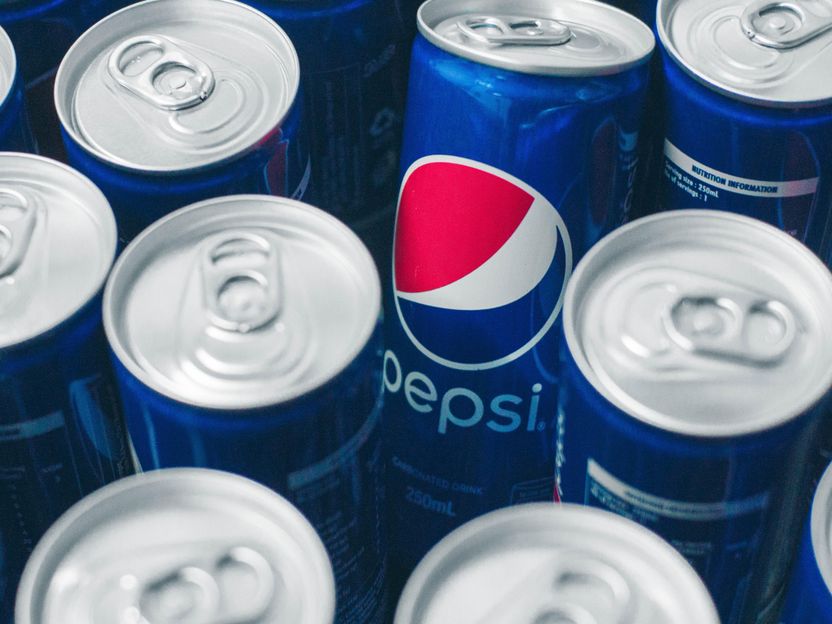Pepsi wants to reduce sugar content in drinks
The beverage and snack company Pepsi wants to significantly reduce the amount of sugar in beverages. In its drinks offered in the EU, the group is aiming for a quarter less sugar by 2025, and 50 percent by 2030. The calories of the German beverage portfolio are to be reduced by 90 percent - compared to 2015, half of the calories have already been banned. Pepsi wants to do good, but that is also good for business, Garret Quigley, chief executive of Pepsico <US7134481081> Western Europe, told Deutsche Presse-Agentur.

Photo by Ja San Miguel on Unsplash
"We know that people want to live a healthy life," Quigley said. Sales of related products rated Nutri-Score B or better are expected to increase by a factor of ten over the next five years. In addition, the company wants to use more recycled plastic and emit zero bottom-line emissions by 2040, he said.
The Nutri-Score is a system for labelling a food's nutritional profile on its packaging - with a five-point scale made up of a combination of letters from A to E and colours. Here, "A" in green represents the most favorable nutritional profile and "E" in red represents the least favorable.
The company is responding to an urgent need for action: In this country, 47 percent of women, 62 percent of men and 15 percent of children are considered overweight. Too much sugar is associated with a higher risk of cardiovascular disease and diabetes. Pepsi's competitor Nestlé is also working to have less sugar in its products.
Doctors have long warned of the dangers of too much sugar in foods. On average, the German Nutrition Society recommends a maximum of 50 grams of sugar a day, depending on height and weight. That would be reached after just over half a liter of non-sugar-reduced lemonade.
A sugar tax introduced in the United Kingdom in 2018 had an effect: The organization Foodwatch found at the beginning of last year that certain lemonade in Germany sometimes contained more than twice as much sugar as the variants offered on the island./mjm/DP/mis (dpa)
Note: This article has been translated using a computer system without human intervention. LUMITOS offers these automatic translations to present a wider range of current news. Since this article has been translated with automatic translation, it is possible that it contains errors in vocabulary, syntax or grammar. The original article in German can be found here.
Most read news
Other news from the department business & finance

Get the food & beverage industry in your inbox
By submitting this form you agree that LUMITOS AG will send you the newsletter(s) selected above by email. Your data will not be passed on to third parties. Your data will be stored and processed in accordance with our data protection regulations. LUMITOS may contact you by email for the purpose of advertising or market and opinion surveys. You can revoke your consent at any time without giving reasons to LUMITOS AG, Ernst-Augustin-Str. 2, 12489 Berlin, Germany or by e-mail at revoke@lumitos.com with effect for the future. In addition, each email contains a link to unsubscribe from the corresponding newsletter.






























































